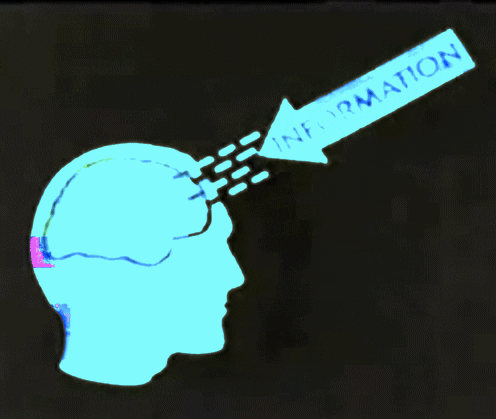When studying misinformation backfires
Plus, the best way to soothe a fussy baby
“We all tell these tales of our lives to make sense of our beliefs.” – psychologist Jeremy Clifton
BRAIN WAVES
Unintended consequences. Researchers have long been curious about misinformation: How is fake news spread? Why do people believe in conspiracy theories? But studying conspiracies might make people more likely to believe them. Political scientists Scott Clifford and Brian W. Sullivan recently tested this hypothesis. In an experiment, they asked people various questions about why President Biden might be making fewer media appearances, suggesting to some study volunteers that there was a conspiratorial explanation for his absence. Turns out, “exposure to a standard conspiracy question causes a significant increase in the likelihood of endorsing that conspiracy a week later.” Put simply, exposing people to misleading information made them more likely to believe that information. But the effect didn’t hold true when researchers asked questions that offered an alternative, non-conspiratorial explanation (the President wants to focus on policy, for example). “We recommend that researchers reduce the likelihood of spreading conspiracy beliefs by adopting a question format that asks respondents to choose between alternative explanations for an event,” the study concluded.
Cry babies. Parents, caretakers and airline passengers have long asked the question: how do we get that baby to stop crying? At Scientific American, research scientists explained that some types of mammals, like rats and monkeys, have a “transport response.” That is, when their babies cry, the mammal has an urge to pick them up and carry them away. This instinct is linked to avoiding danger. “So the infants innately cooperate with the parents by withholding their cries and movements during carrying,” the researchers explain, “because their lives literally depend on it.” Researchers tested this response in humans, asking mothers to try four different ways of hushing their fussy babies. They held them while walking or sitting, pushed them in a stroller, or placed them in a crib or on the couch. “And we found that all the infants stopped crying, and more than half of them fell asleep, during or soon after the five minutes of carrying—even in the daytime,” said researcher Kumi Kuroda. Of course, your mileage may vary.
The awe of awe. Many of us rush through our days, weeks, and lives, chasing goals, and just trying to get everything done. But that can blind us to a very simple source of joy that’s all around us. Listen to learn more.
ON THE HIDDEN BRAIN PODCAST
March 6: As you move through the world, it’s inevitable that your way of seeing things won’t always align with the people around you. Maybe you disagree with the way your neighbor raises her kids, or find your brother’s politics to be troubling. But you may not realize how much your core beliefs shape your perception of the world. This week, we talk with psychologist Jer Clifton about how our beliefs shape our reality — and how we can use this knowledge to live happier and more harmonious lives.
ON THE MY UNSUNG HERO PODCAST
March 7: Laura was feeling defeated from her chemotherapy treatment when the words of an anonymous x-ray technician made her day.
Don’t forget to send us the story of your unsung hero! Record a voice memo on your phone and email it to myunsunghero@hiddenbrain.org.
MIND GAMES
George, William, John, Abe, and Millard have their birthdays on consecutive days, all between Monday and Friday. George’s birthday is as many days before Millard’s and William’s is after Abe’s. John is two days older than Abe. Millard’s birthday is on Thursday. Can you figure out whose birthday is on each day?
LAST WEEK’S PUZZLE
If five cats can catch five mice in five minutes, how long will it take one cat to catch one mouse?
The answer: Five minutes. It would take one cat 25 minutes to catch all five mice (5x5=25). Working backward and dividing 25 by five, we get five minutes for one cat to catch each mouse. [source]
FROM THE TWITTERATI…
A MOMENT OF JOY
May we all be well-rested as we emerge from hibernation
Have an idea for Hidden Brain? A story you want to share with us? Send an email to ideas@hiddenbrain.org. And if you’d like to support our work, you can do so here. Listen to us on Spotify, Apple, Amazon Music or your favorite podcast platform.





